Maintaining a sense of humor can be vitally important, particularly when times are tough. The owner of this 1980 Trans Am Turbo lives by that philosophy because they describe this classic as just as slow now as when it was new. Whether or not that assessment is accurate depends on your viewpoint and experience. There’s little doubt that had the cards played differently, this car could have laid the foundation for a new generation of American V8 recapturing the performance glory of the late 1960s. The Trans Am, located in Ballwin, Missouri, is listed for sale here on Craigslist. You could slip behind the wheel of this classic for $12,500. Barn Finder Pat L. has a well-tuned radar for spotting interesting classics, so thank you for referring this one, Pat.
The seller describes this Fiero Bronze Trans Am as all original, suggesting it has never undergone any form of cosmetic restoration. If this is accurate, its appearance is pretty impressive. The paint shines nicely, with any flaws or defects too insignificant to show in the supplied photos. The panels are straight, while the gaps are tight and consistent. The seller indicates that the doors open and close as they did when the car was new, suggesting that there are no structural issues or signs of abuse. The other thing there is no sign of is rust. It could plague these classics, impacting the rockers, lower rear quarter panels, the area around the back window, and the rear valance. We can see the first three areas in the supplied photos, and they appear clean. The state of the valance is unknown, but the seller doesn’t mention any problems in the listing. The distinctive graphics look crisp and clean, and the glass is flawless. One of my favorite features of the Trans Am Turbo is the alloy wheels. These manage to combine form and function successfully. They look impressive, and the company designed them to suck away hot air from the brakes to improve efficiency. As such, they are also prone to deterioration caused by accumulated brake dust. These look pretty good, with no evidence of stains.
The Trans Am’s interior is tidy for a vehicle of this age, with only some wear and discoloring on the seats as a fault requiring attention. The lack of tears and other physical damage to the upholstered surfaces means that addressing the issue with the seats could happen as time and circumstances allow. It would require a new set of seatcovers to lift the interior to the next levels, which would lighten the buyer’s wallet to the tune of $630. The rest of the interior presents well, with no evidence of significant problems, deterioration, or aftermarket additions. Comfort features include air conditioning, power windows, an AM radio/8-track player, and a tilt wheel.
Unfortunately, the seller provides no engine photos. This is disappointing because the engine is the defining feature of this Trans Am. General Motors decreed that the 1979 model year would be the last where Pontiac could fit the large-capacity V8s to its Trans Ams. Since the company wished to maintain its reputation for producing performance models, this problem required some lateral thinking. Therefore, it decided that a forced induction option was the best path. They didn’t simply bolt a “hairdryer” to its existing 301ci V8, cross their fingers, and hope for the best. The 301 Turbo featured an upgraded engine block and a different crankshaft, pistons, conrods, and camshaft. A Garrett TB305 turbocharger and a unique Rochester Quadrajet carburetor were bolted to the engine. With the boost set at a relatively conservative nine psi to cope with low-grade fuel, this new engine produced 210hp. The Turbo could be prone to performance variations depending on atmospheric conditions, but it could still cover the ¼ mile in 16.1 seconds. That doesn’t sound great, but considering the previous year’s 400ci V8 took 15.9 seconds to complete the same journey, it looks slightly better. It is also worth noting that the ’79 Trans Am featured a four-speed manual transmission, while the 1980 was an auto-only affair. Had Pontiac offered a manual behind the Turbo V8, you can be sure it would have easily trumped the 1979 model. Sadly, the Turbo V8 lasted for a mere two years, and the engineers never had the chance to develop the concept further. The motor in our feature car is original, and the owner doesn’t heap praise upon it. He describes it as being as slow today as it was when new. However, it is in good health, with the owner stating that it could be used as a daily driver.
You have to wonder how different automotive history could have been if the engineers at Pontiac had the opportunity to continue the ongoing development of the 301 Turbo V8. In its original guise as fitted to vehicles like our feature car, it produced 210hp in what could be best described as pretty raw form. The performance potential could have been astonishing if the engine had eventually received electronic fuel injection, an effective engine management system, an intercooler, and a blow-through turbo setup. However, times were changing within General Motors, and the 301 Turbo was one of the casualties of a rationalization program. With the demise of Pontiac, that’s a question that will never receive an answer. Considering what the company extracted from this motor in 1980, what sort of power figures do you think it could have produced with the updates I’ve mentioned?
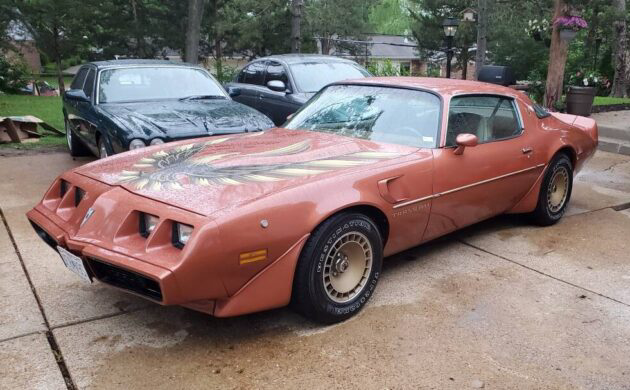
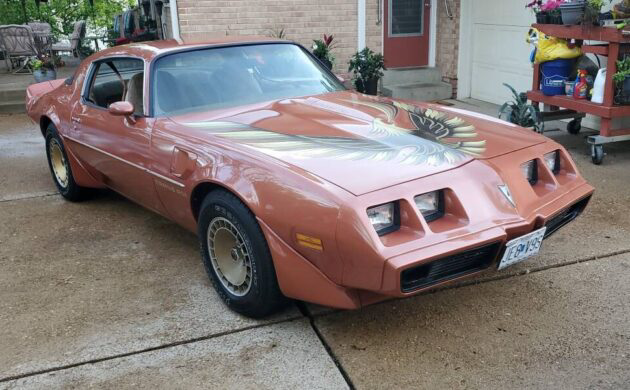
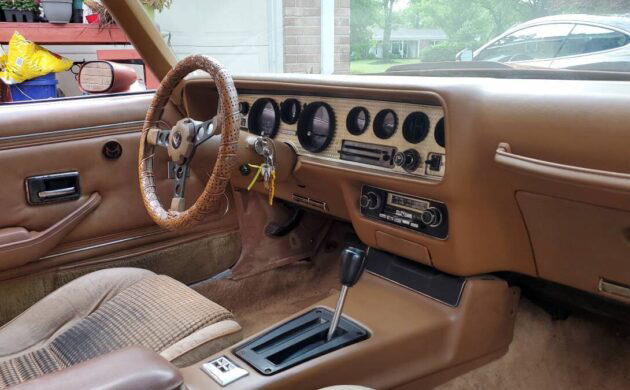
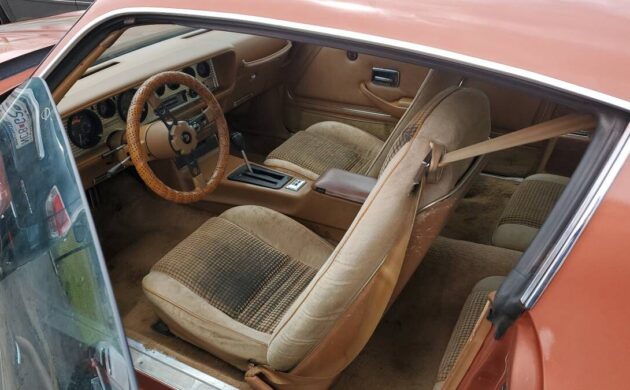
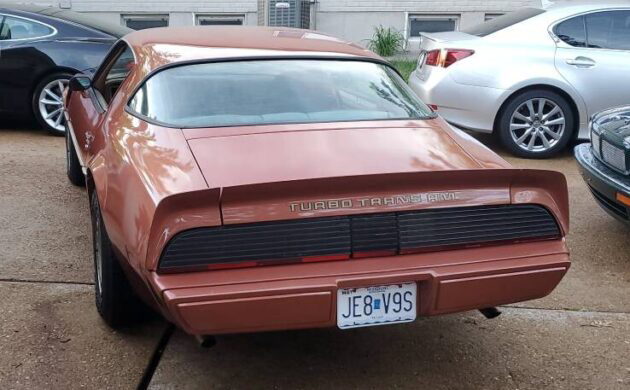


There is a little Co. called TTA Performance that with a few bolt on s and tricks can really wake these up, I have read he has one of these turbos in the 12s with a few additions.
Gone!
I did not think it would last long at that price
I don’t think I’ve seen this orangey brown color on a T/A before.